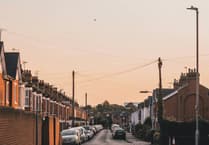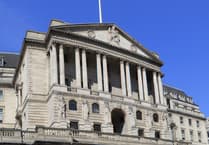New data has revealed that Teignbridge has one of the highest numbers of vacant homes in the South West.
The data, gathered through Freedom of Information requests by Admiral, shows that there are 16,900 empty homes in the South West, with a total worth of £5,000,000,000.
The research breaks down how long homes have been vacant, and ranks council areas by number of empty homes.
For houses that had been empty for between five and nine years, Teignbridge ranked fourth, with 35 vacant houses and the fourth highest collective value, totalling £10,140,375.
Teignbridge was also the area with the fourth most homes that had been vacant for more than 10 years, with 26 empty houses and a total value of £7,532,850.
Looking at houses that have been vacant for between two and four years, Teignbridge ranked sixth, with 212 empty homes and a collective value of £61,421,700.
In total, Teignbridge has 291 homes that have been empty for more than six months.
Commenting on the data, a spokesperson for Teignbridge District Council said: “Working closely with property owners has enabled us to significantly reduce the number of all properties that have been empty for six months or more in the district to 291.
“We continue to engage with the owners of these properties and take all available steps, including enforcement action where appropriate, to encourage them to bring their properties back into use.”
Jonathan Tan, co-founder and CEO of housing charity Greater Change, commented: “There are over 1.2 million households on the waiting list of council housing in England.
“While the data suggests that long-term empty properties could potentially accommodate up to 21 per cent of the current housing demand, it's crucial to understand that the actual percentage of habitable properties is likely significantly lower.
“Moreover, the estimated total of individuals experiencing homelessness is suspected to surpass the officially recorded statistics.
“Numerous factors contribute to properties remaining vacant long-term, rendering the full 21 per cent not necessarily feasible for social housing conversion.
“These factors may include the property being a holiday home, requiring extensive renovation, or being entangled in legal proceedings.
“Local housing allowance rates and universal credit rates have been frozen since April 2020 levels, making private renting unaffordable to those on benefits.
“We at Greater Change are actively campaigning alongside our partners, different coalitions and homelessness charities to see the benefits rates rise to protect people who are the most financially vulnerable and give them the ability to afford to live.”




